Chaga (Inonotus obliquus) is a health-giving powerhouse in the world of functional fungi. It is a multifaceted mushroom that offers a myriad of health supporting properties, especially when it comes to whole body wellness.
Whilst not much to look at – it resembles a charred lump of wood! – its traditional uses were wide-reaching. Hippocrates, it is written, liked to use an infusion of Chaga to clean wounds. And in Eastern Europe, it enjoyed a significant reputation for supporting everything from liver and cardiovascular to gut health (1). There is also a significant history of Chaga being used daily as a nutritive tea or coffee replacement, particularly in the Baltic countries. In fact, it tastes rather like a medium roast coffee!
No doubt, its abundance of bioactive compounds is what helped earn its moniker, the ‘King of mushrooms’. It is these substances that help protect the fungus during its life, and we can put them to work in our own bodies too.
Antioxidant power for healthy aging
One area in which Chaga excels is in the abundance of phenolic compounds it contains which provide an antioxidant effect (2). In fact, of all the functional fungi out there, Chaga has the strongest antioxidant activity of them all (3).
Antioxidants are important components for health as they help to keep in balance the production of free radicals in the body from normal cellular processes as well as from external factors. Some of these factors include exposure to toxins from pesticides and cigarette smoke, UV radiation, poor diets and stress, to name a few (4).
Without this balance being maintained, excess free radical production can lead the body to oxidative stress, premature aging and poor health outcomes (5).
Chaga’s antioxidant properties help support cardiovascular health including the maintenance of healthy cholesterol balance (6), as well as supporting healthy brain function as we age.
Healthy gut = healthy life
Supporting optimal bacterial balance in the gut is another area where Chaga lends a proverbial hand (7). A healthy balance of gut bacteria is essential not only for good gut health, but also for overall immune system function, and general wellbeing.
Like many functional mushrooms, Chaga also contains a profusion of polysaccharides such a beta-glucans, long molecular chains of sugars which play an important part in supporting both the gut as well as immune health. Polysaccharides act as non-digestible fibre which function as a prebiotic to feed and nourish the digestive microbiome for optimal balance (7,8).
Immune hero
Chaga is considered a tonic to overall immune health, and in particular is shown to help support cellular health, maintaining normal cell growth and turnover.
Many of the bioactive compounds found in Chaga are converted from the constituents found within its preferred host – the birch tree. Chief amongst them is betulin. This unique compound is currently being extensively studied for its effect on immune system health, in particular for supporting healthy immune balance and cellular processes.
Chaga also contains the full spectrum of immune-supporting compounds as found in other mushrooms, such as shiitake and maitake (9).
Stress buster
Chaga is the ultimate ‘adaptogen’. Adaptogens are herbal allies that help the body respond to stress and promote resilience.
In herbalism, much can be learned from the growing conditions of plants and fungi in the natural world as to their potential uses. For Chaga, unlike most mushrooms which prefer a warm, humid environment, it is native to the cold, forested regions of the world, where it is also exposed to great climactic variation, especially with regards UV exposure.
It is also a slow-growing, long-lived mushroom where it only reaches maturity after many years, usually at least a decade or two. The stressors encountered during its life cycle are what encourages the development of the secondary plant metabolites which we can take advantage of for human health. These properties help demonstrate how we can utilise Chaga for health.
Promote your year-round awesomeness!
If you find yourself needing extra support to age better, cope with life’s demands, or to help restore your internal balance, Chaga is a must for your daily wellness ritual.
References:
- Szychowski, K. A., Skóra, B., Pomianek, T., & Gmiński, J. (2020). Inonotus obliquus – from folk medicine to clinical use. Journal of traditional and complementary medicine, 11(4), 293–302. DOI: 10.1016/j.jtcme.2020.08.003
- Zhang, J. J., Li, Y., Zhou, T., Xu, D. P., Zhang, P., Li, S., & Li, H. B. (2016). Bioactivities and Health Benefits of Mushrooms Mainly from China. Molecules (Basel, Switzerland), 21(7), 938. https://doi.org/10.3390/molecules21070938
- Yuki N., Yuzo S., Tetsuya K. (2007). Antioxidant Small Phenolic Ingredients in Inonotus obliquus (persoon) Pilat (Chaga). Chemical and Pharmaceutical Bulletin 55 (8) 1222-1226. DOI: 10.1248/cpb.55.1222
- Sharifi-Rad, M., et al. (2020). Oxidative Stress and Neural Inflammation in Peripheral Nervous System. Front. Physiol., 02 July 2020. DOI: 10.3389/fphys.2020.00694
- Bee Ling Tan, Mohd Esa Norhaizan, Winnie-Pui-Pui Liew, “Nutrients and Oxidative Stress: Friend or Foe?”, Oxidative Medicine and Cellular Longevity, vol. 2018, Article ID 9719584, 24 pages, 2018. DOI: 10.1155/2018/9719584
- Yang, M., Hu, D., Cui, Z., Li, H., Man, C., & Jiang, Y. (2021). Lipid-Lowering Effects of Inonotus obliquus Polysaccharide In Vivo and In Vitro. Foods (Basel, Switzerland), 10(12), 3085. DOI: 10.3390/foods10123085
- Jayachandran, M., Xiao, J., & Xu, B. (2017). A Critical Review on Health Promoting Benefits of Edible Mushrooms through Gut Microbiota. International journal of molecular sciences, 18(9), 1934. DOI: 10.3390/ijms18091934
- Burmasova, M. A., Utebaeva, A. A., Sysoeva, E. V., & Sysoeva, M. A. (2019). Melanins of Inonotus Obliquus: Bifidogenic and Antioxidant Properties. Biomolecules, 9(6), 248. DOI: 10.3390/biom9060248
- Kim Y. R. (2005). Immunomodulatory Activity of the Water Extract from Medicinal Mushroom Inonotus obliquus. Mycobiology, 33(3), 158–162. DOI: 10.4489/MYCO.2005.33.3.158




